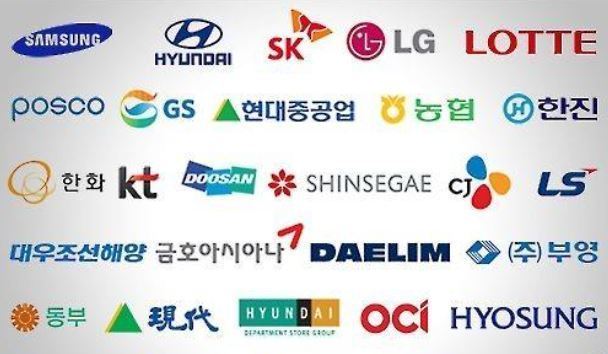 |
(Yonhap) |
South Korea’s major businesses saw their total number of staffers shrink by nearly 10,000 since the onset of the COVID-19 pandemic as conglomerates reduced new recruits and distributers carried out restructuring, industry data showed Wednesday.
Meanwhile, the number of irregular workers in the country soared by almost 2,000 during the same period, reflecting the overall deterioration in the quality of jobs.
According to a survey conducted by corporate tracker CEO Score of 309 of the nation’s top 500 companies, the total number of employees as of the first quarter this year reached around 1.2 million.
The given figure was down 9,756, or 0.8 percent from the fourth quarter of 2019, shortly before the coronavirus broke out.
During this period, the number of regular employees decreased by 11,710 to 1.13 million, down 1 percent. That of irregular workers, on the other hand, rose 1,954 or 2.8 percent to 72,527.
Fourteen out of 20 business sectors saw their regular staffers decrease. The most drastic fall was observed in the retail industry, which logged a 7.6 percent fall.
Per company, Samsung Electronics was noted for having 6,358 more regular employees than the fourth quarter of 2019. Coway also hired 1,703 more employees during the given period.
Companies that hired more employees included chipmaker SK hynix, pharmaceutical titan Samsung Biologics Co., online and mobile game developer NCSOFT Corp., and portal giant Naver.
Retailers such as Lotte Shopping and GS Retail, on the other hand, reduced the number of staffers by almost 3,000 during the same period. Lotte Shopping cut its payroll by 11 percent, while GS Retail reduced its workforce by 31 percent. Doosan Heavy Industries & Construction, Hyundai Motor, Kookmin Bank, and LG Electronics also saw their respective figure dip by more than 1,000.
“The 14 industry sectors that reduced hiring also saw their sales shrink during the past year, reflecting an obvious impact of COVID-19,” CEO Score said.
Meanwhile, capital spending by the 309 firms came to 35.71 trillion won ($31.8 billion) in the first quarter of this year, down 0.7 percent, but their spending on research and development rose 1.5 percent to 12.79 trillion, the data showed.
By Bae Hyun-jung (
tellme@heraldcorp.com)







![[Weekender] Korea's traditional sauce culture gains global recognition](http://res.heraldm.com/phpwas/restmb_idxmake.php?idx=644&simg=/content/image/2024/11/21/20241121050153_0.jpg)
